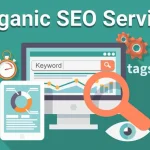Now Reading: SEO for Plumbers: Rank Higher & Get More Customers
- 01
SEO for Plumbers: Rank Higher & Get More Customers
SEO for Plumbers: Rank Higher & Get More Customers

In today’s digital era, plumbing businesses can no longer rely solely on word-of-mouth referrals and traditional advertising. The digital landscape has transformed the way customers find and choose service providers, making SEO (Search Engine Optimization) an indispensable tool. If you’re a plumber looking to rank higher on search engines and attract more customers, this article is your roadmap to mastering SEO.
Table of contents
- Introduction to SEO for Plumbers
- Understanding the Digital Landscape for Plumbing Services
- Keyword Research for Plumbing SEO
- On-Page SEO Strategies for Plumbers
- Off-Page SEO Strategies for Plumbing Businesses
- Technical SEO for Plumbing Websites
- Content Marketing for Plumbers
- Measuring and Analyzing SEO Success
- Future Trends in SEO for Plumbing Services
- Conclusion and Next Steps
- Frequently Asked Questions (FAQs)

Introduction to SEO for Plumbers
When it comes to SEO, the concept might seem intimidating at first. However, it’s simply about making your website visible to potential customers when they search online for plumbing services. As more people turn to the internet to find reliable plumbers, having a strong SEO strategy can be the difference between a thriving business and a struggling one.
Why SEO is Essential for Plumbing Businesses
Imagine a customer with a leaky faucet desperately searching for a solution online. Without proper SEO, your plumbing business might be buried under competitors, losing out on valuable leads. SEO not only increases your online visibility but also builds trust and credibility. When your website appears at the top of search results, customers are more likely to view your business as reputable and reliable.
How SEO Drives Customer Acquisition
SEO is all about connecting your services with the right audience. By optimizing your website for relevant keywords, you ensure that potential customers find you exactly when they need you. This targeted approach means that every click on your website has the potential to convert into a loyal customer.
Understanding the Digital Landscape for Plumbing Services
The digital landscape is constantly evolving, and understanding how your target audience behaves online is crucial. For plumbers, this means acknowledging the growing trend of local searches, mobile browsing, and voice search queries.
Online Consumer Behavior in the Plumbing Industry
Customers today are tech-savvy and use search engines to find quick solutions to their plumbing problems. Whether it’s an emergency repair or a planned installation, they expect to find reliable information immediately. Your website must cater to this need by being fast, informative, and easy to navigate.
Local vs. National Search Trends
While national SEO strategies have their merits, local SEO is particularly important for plumbing businesses. Most plumbing services are localized, meaning that customers are searching for plumbers in their immediate vicinity. By optimizing for local keywords and creating a Google My Business profile, you ensure that your business appears in local search results and on maps.
Keyword Research for Plumbing SEO
Keyword research is the backbone of any successful SEO strategy. For plumbers, finding the right keywords means identifying what potential customers are searching for and tailoring your content to meet those needs.
Identifying Plumbing-Specific Keywords
Start by brainstorming a list of services you offer: emergency plumbing, leak repair, drain cleaning, water heater installation, and more. Use tools like Google Keyword Planner, SEMrush, or Ahrefs to discover which terms have high search volumes but relatively low competition. This step helps you understand your audience’s language and how they describe their problems.
Leveraging Long-Tail and Local Keywords
Long-tail keywords, such as “emergency leak repair in [Your City]” or “affordable water heater installation near me,” are invaluable. These phrases are less competitive and more targeted, increasing the likelihood of conversion. Incorporate these long-tail keywords into your content, meta tags, and blog posts to boost your local SEO.
On-Page SEO Strategies for Plumbers
On-page SEO involves optimizing individual pages on your website so that they rank higher and attract more relevant traffic. This encompasses everything from the content on your page to the HTML source code.
Optimizing Title Tags and Meta Descriptions
Title tags and meta descriptions are the first things users see in search engine results. Ensure that your title tags are compelling and include your primary keywords. A well-crafted meta description should provide a concise summary of your services and include a call-to-action, encouraging users to click through to your site.
Crafting Quality Content for Service Pages
Quality content is the cornerstone of SEO. For each service you offer, create detailed pages that explain what you do, how you do it, and why you’re the best choice in your area. Use clear, conversational language that resonates with your target audience.
Service Descriptions and Case Studies
Detailing each service with real-life examples and case studies can build trust. For instance, if you specialize in fixing water heater issues, share a success story that outlines the problem, the solution you provided, and the outcome. This not only boosts your SEO but also demonstrates your expertise.
Blogging and Educational Content
Regularly updated blogs can drive traffic and establish your authority. Write posts that address common plumbing issues, maintenance tips, and DIY fixes. While your aim is to educate, always include a call-to-action for professional help when necessary.
Off-Page SEO Strategies for Plumbing Businesses
While on-page SEO focuses on your website, off-page SEO involves building a robust online presence through external channels.
Building High-Quality Backlinks
Backlinks from reputable websites signal to search engines that your site is trustworthy. Reach out to local business directories, community blogs, and industry-specific websites to secure backlinks. Guest blogging and press releases about community projects or innovations in your service can also help build a strong backlink profile.
Utilizing Local Citations and Directory Listings
Ensure your plumbing business is listed on local directories such as Yelp, Angie’s List, and the Yellow Pages. Consistent NAP (Name, Address, Phone Number) information across all listings enhances your local SEO and helps potential customers find you more easily.
Technical SEO for Plumbing Websites
Technical SEO ensures that your website meets the technical requirements of modern search engines. It’s about making sure your site is fast, secure, and accessible.
Ensuring Website Speed and Mobile Optimization
A slow-loading website can frustrate users and negatively impact your search rankings. Optimize your images, use caching, and consider a Content Delivery Network (CDN) to speed up your site. With a significant number of users browsing on mobile devices, a responsive design is essential.
Implementing Secure Websites (HTTPS)
Security is a top priority for both search engines and users. Ensure your website is encrypted with HTTPS to protect user data and build trust. This small change can have a big impact on your SEO rankings.
Using Structured Data and Schema Markup
Structured data, like schema markup, helps search engines understand the context of your content. For a plumbing business, you can use local business schema to highlight your services, location, and reviews. This additional information can lead to rich snippets in search results, enhancing visibility and click-through rates.
Content Marketing for Plumbers
Content marketing goes hand-in-hand with SEO by providing valuable information that attracts and retains customers.
Leveraging Social Media and Reviews
Social media platforms offer a direct way to connect with your customers. Share before-and-after photos, customer testimonials, and tips on maintaining plumbing systems. Encourage satisfied customers to leave positive reviews on platforms like Google My Business and Yelp. These reviews not only boost your credibility but also contribute to your local SEO.
Creating Engaging Video Content
Videos are increasingly popular and can effectively showcase your work. Consider creating short, informative videos demonstrating common plumbing fixes or explaining the benefits of regular maintenance. Video content is highly shareable and can significantly improve your engagement and visibility on platforms like YouTube and Facebook.
Measuring and Analyzing SEO Success
No SEO strategy is complete without tracking its performance. Monitoring your efforts helps you understand what works and where improvements are needed.
Key Performance Indicators (KPIs)
Identify the KPIs that matter most to your business. Common metrics include organic traffic, bounce rate, conversion rate, and rankings for targeted keywords. Regularly reviewing these metrics gives you insights into your SEO progress and helps you refine your strategy.
Essential SEO Tools for Plumbers
Utilize tools like Google Analytics, Google Search Console, SEMrush, and Ahrefs to monitor your website’s performance. These platforms offer data on user behavior, keyword performance, and backlink profiles, enabling you to make data-driven decisions that enhance your SEO strategy.
Future Trends in SEO for Plumbing Services
The SEO landscape is continuously evolving, and staying ahead of trends can keep your plumbing business competitive.
Voice Search and Artificial Intelligence
With the rise of smart speakers and virtual assistants, voice search is becoming more prominent. Optimize your content for natural language queries and FAQs that customers might ask verbally. Artificial intelligence (AI) is also playing a significant role in SEO, helping analyze user behavior and predict search trends.
The Expanding Role of Local SEO
Local SEO will continue to be a key factor for service-based businesses like plumbing. As more people rely on mobile and voice search to find local services, ensuring your business is optimized for local searches is more critical than ever. Keep your local listings updated and engage actively with your community online to maintain your competitive edge.
Conclusion and Next Steps
In conclusion, mastering SEO for your plumbing business isn’t just about chasing rankings; it’s about connecting with the right customers at the right time. By understanding the digital landscape, conducting thorough keyword research, optimizing your website, and leveraging both on-page and off-page strategies, you can elevate your online presence and attract more customers.
SEO is a long-term investment that pays dividends over time. It requires consistency, attention to detail, and a willingness to adapt to new trends. Whether you’re just starting or looking to refine your existing strategy, every effort you put into SEO brings you closer to becoming the go-to plumber in your area.
Take the next step by assessing your current SEO performance, implementing the strategies discussed, and continually monitoring your progress. With dedication and the right approach, your plumbing business will not only rank higher on search engines but also enjoy sustained growth and a steady stream of new customers.
Frequently Asked Questions (FAQs)
SEO, or Search Engine Optimization, is the process of optimizing your website to rank higher in search engine results. For plumbers, SEO is crucial because it increases online visibility, drives targeted traffic, and connects you with potential customers actively searching for plumbing services.
Focus on local keyword research, maintain consistent NAP (Name, Address, Phone) information across all directories, optimize your Google My Business profile, and gather positive reviews from your customers. These steps help ensure that your business appears prominently in local search results.
Key on-page SEO strategies include optimizing title tags and meta descriptions, creating high-quality service pages and blog content, and using structured data like schema markup. These efforts make your website more appealing to both search engines and potential customers.
Backlinks from reputable sites signal to search engines that your content is trustworthy and authoritative. Building a strong backlink profile through local citations, guest posts, and quality partnerships can significantly boost your website’s rankings and credibility.
Regular updates keep your content fresh and relevant. Aim to update your website at least once a month with new blog posts, case studies, or service updates. Consistent content updates not only engage your audience but also signal to search engines that your site is active and valuable.























